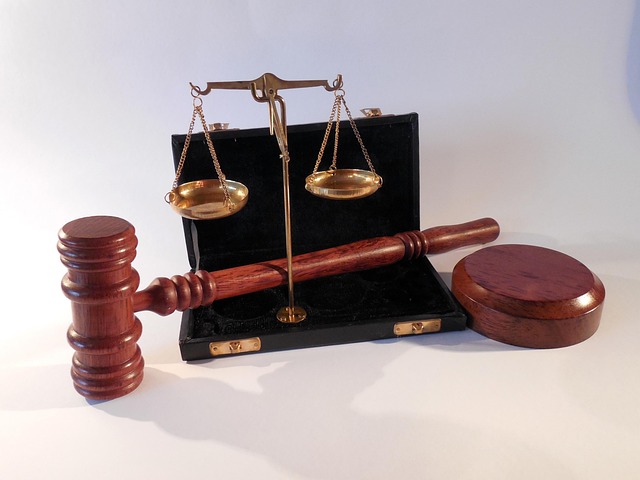Antitrust violations, such as price-fixing and abuse of dominant market positions, harm consumers by driving up prices, lowering quality, and reducing choices. Consumer protection lawsuits seek compensation in consumer protection lawsuits while deterring anti-competitive behaviors and promoting fair business conduct. Through complex strategies in white collar defense, successful verdicts create a more equitable market environment. Notable cases against powerful corporations hold them accountable, set precedents, and compensate affected consumers, fostering fair competition and justice.
Antitrust violation cases are a growing concern in today’s competitive markets, with consumer protection lawsuits playing a pivotal role in holding companies accountable. Understanding these violations and their impact on consumers is essential. This article delves into the various types of antitrust breaches and explores how consumer protection lawsuits drive corporate responsibility. A key focus is on compensation mechanisms available to affected consumers, highlighting successful case studies and their outcomes. Learn about the legal avenues for redress and the role of compensation in consumer protection lawsuits.
- Understanding Antitrust Violations: Types and Impact on Consumers
- The Role of Consumer Protection Lawsuits in Holding Companies Accountable
- Exploring Compensation Mechanisms for Antitrust Violation Cases
- Case Studies: Successful Antitrust Violation Lawsuits and Their Outcomes
Understanding Antitrust Violations: Types and Impact on Consumers

Antitrust violations refer to actions by businesses or corporations that restrict competition or stifle market growth. These can take various forms, such as price-fixing agreements, where companies collude to manipulate prices, or exclusive dealing contracts that limit retailers’ ability to do business with competitors. Another common practice is the abuse of dominant market positions, where a company uses its power to disadvantage rivals and hurt consumers.
The impact on consumers can be significant. These violations often lead to higher prices, reduced product quality, and fewer choices in the marketplace. When consumers file lawsuits against companies engaging in such practices, compensation in consumer protection lawsuits becomes a crucial aspect of restitution. This not only helps recover financial losses but also sends a message to businesses about the importance of adhering to antitrust laws, fostering fairness within the market, and benefiting both the philanthropic and political communities.
The Role of Consumer Protection Lawsuits in Holding Companies Accountable

In the realm of antitrust law, consumer protection lawsuits play a pivotal role in holding corporations accountable for anti-competitive practices. When companies engage in behavior that infringes upon market competition or harms consumers, these legal actions serve as a powerful tool to ensure justice and provide compensation in Consumer Protection Lawsuits. Such cases not only aim to deter future violations but also protect the interests of both corporate and individual clients by promoting fair business conduct.
Winning challenging defense verdicts in antitrust litigation is a testament to the effectiveness of these lawsuits. The process involves meticulous navigation through complex legal landscapes, requiring expertise in white collar defense strategies. By successfully prosecuting or defending such cases, law firms foster a healthier business environment, ensuring that companies adhere to fair trade practices and ultimately benefiting consumers and the overall market ecosystem.
Exploring Compensation Mechanisms for Antitrust Violation Cases

In Consumer Protection Lawsuits, particularly those involving antitrust violations, determining proper compensation is a complex task. Beyond monetary damages, which aim to rectify economic harm, various mechanisms can be explored to ensure justice and promote ethical business practices. These include injunctive relief, designed to stop ongoing or future illegal behavior, and restitution, which returns ill-gotten gains to affected consumers.
The role of compensation in these cases extends beyond financial redress. It influences the broader impact on both the philanthropic and political communities, as successful lawsuits can set precedents for future regulations and encourage ethical conduct among businesses. This is especially crucial in white collar defense scenarios, where complex legal strategies often accompany allegations of antitrust violations across the country.
Case Studies: Successful Antitrust Violation Lawsuits and Their Outcomes

In recent years, several notable antitrust violation cases have garnered significant attention, demonstrating the power of collective action in safeguarding consumers’ rights. These high-stakes cases not only hold powerful corporations accountable but also set precedents for future litigation. One prominent example involves a tech giant accused of suppressing competition through anti-competitive practices. The resulting lawsuit led to a substantial settlement, providing affected consumers with compensation and restoring market balance. This outcome highlights the effectiveness of antitrust laws in fostering fair competition.
Another fascinating instance is an unprecedented track record of successful claims against pharmaceutical companies for price-fixing. These cases resulted in massive fines and damages, reshaping industry practices and ensuring better access to essential medications. Through such initiatives, consumers can find solace knowing that their rights are protected, even in complex general criminal defense scenarios. These victories send a strong message: antitrust violations will not be tolerated, and consumers deserve justice and fair compensation.
Antitrust violation cases not only serve as deterrents but also play a pivotal role in ensuring fair market practices. By understanding the impact on consumers and leveraging successful lawsuits, consumer protection efforts can drive significant changes. Exploring effective compensation mechanisms further strengthens this process, ultimately fostering an environment where companies prioritize ethical business conduct. Through case studies, we’ve witnessed the power of collective action, demonstrating that Consumer Protection Lawsuits are a robust tool in holding accountable those who engage in antitrust violations, thereby enhancing consumer rights and protection.






